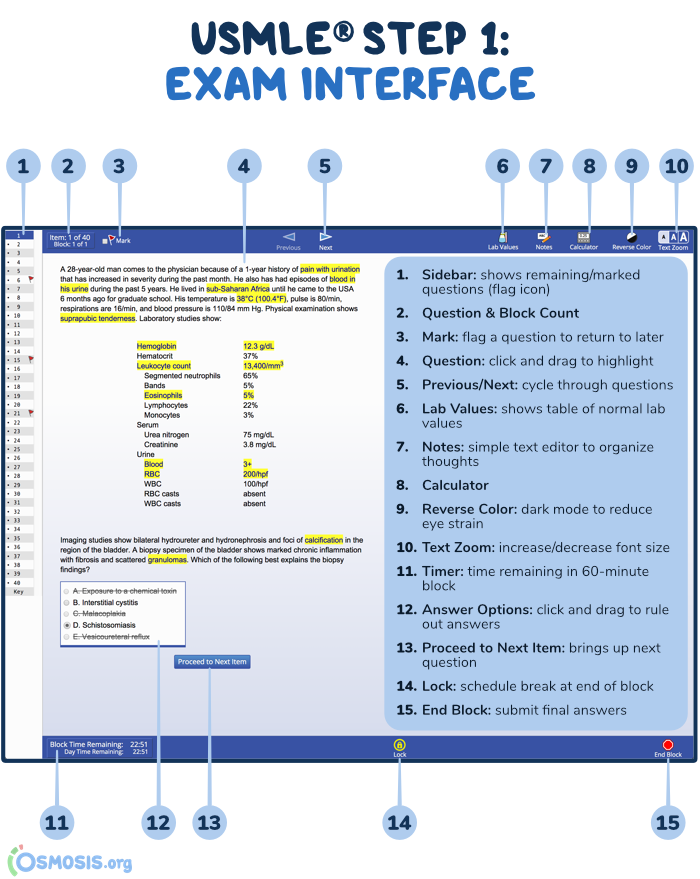Usmle step 1 subjects distribution
This three-step assessment is designed to assess a medical doctor's ability to apply knowledge, usmle step 1 subjects distribution, concepts, and principles, ensuring that they meet the necessary standards for safe and effective patient care. Let us familiarise ourselves with the USMLE exam syllabus and pattern to help candidates prepare well for each step. The first step of the USMLE focuses on assessing a candidate's understanding and ability to apply basic science concepts to the practice of medicine.
It is used to assess your understanding and ability to apply the important core concepts of the sciences learned in medical school years 1 and 2. Your ability to pass Step 1 ensures the foundation has been laid for your safe and competent practice of medicine both now and in the future. TIP: When reading through the question, try to formulate an answer in your head prior to reading the available answers. The selection of available answers may play tricks on you and point you in the wrong direction. These questions are divided into seven minute blocks over an 8 hour day.
Usmle step 1 subjects distribution
.
General Principles of Foundational Science. Let's understand the subjects and their range of weightage.
.
With the help of one comprehensive resource. AMBOSS is the only platform that covers you throughout all your years of medical school and into your residency. Our library acts as a trusty clinical companion on the wards, ready for you to reference at your point-of-care needs. Our Step 1 content, as well as the rest of our exam materials, are developed and curated via a rigorous internal peer-reviewed process powered by over 50 physicians who have scored in the top percentiles on their USMLE Step and NBME Shelf exams. Instead of wasting time between seemingly-related-but-not-really external resources, you can keep your studying centralized with AMBOSS. Every Qbank answer is linked to a corresponding Article that you can open up right beside the question. Feeling comfortable with the exam format is just as important as knowing the content that will appear on it. Enabling exam simulation mode will replicate exam-day conditions, featuring a timer and NBME-style interface.
Usmle step 1 subjects distribution
The second exam in the USMLE series tests medical students on their knowledge of the clinical sciences and their patient care skills. Step 2 emphasizes prevention and health promotion. Medical students typically take Step 2 at the end of their third year. Below we explain the structure of the exam and list some helpful information for you as you begin to prepare a study plan. Still looking for a Step 2 Qbank? Get started with 7-day FREE access! Step 2 CK is divided into 8 blocks of multiple choice questions. The number of questions may vary between blocks. You will always be told how many questions are in a given block before you begin.
Tana mongeau porn
The fourth attempt is permissible but should take place at least 12 months after the initial try for that specific examination and must also be at least six months after the last attempt. Premed Events. Your ability to pass Step 1 ensures the foundation has been laid for your safe and competent practice of medicine both now and in the future. The second day is 9 hours long with about MCQs divided into 6 forty five minute blocks. Patient Care: Management. These three attempts must occur within a month period. Build a solid foundation with your classes. The majority of medical students use some sort of Qbank for their Step 1 test preparation. Endocrine System. The final step of the USMLE, Step 3, focuses on assessing a candidate's ability to apply medical knowledge and understanding of biomedical and clinical science to patient care. This three-step assessment is designed to assess a medical doctor's ability to apply knowledge, concepts, and principles, ensuring that they meet the necessary standards for safe and effective patient care. The exam consists of multiple-choice questions and computer-based case simulations, testing not only factual recall but also clinical problem-solving skills. Which one? Beyond the obvious expert knowledge that you will have from the first two years of medical school, question banks Qbanks are the key to rocking Step 1. There are also 13 computer-based case simulations CCS.
Step 1 tests your ability to recall important information related to the Basic Sciences. Meanwhile, Step 2 CK tests your ability to apply that same information in the clinic. Does that mean Step 2 matters less than Step 1 in the grand scheme of things?
There will be about MCQs divided into 8 sixty-minute blocks. These questions are divided into seven minute blocks over an 8 hour day. Cardiovascular System. Advanced Clinical Medicine. This three-step assessment is designed to assess a medical doctor's ability to apply knowledge, concepts, and principles, ensuring that they meet the necessary standards for safe and effective patient care. Social Sciences. Communication and Professionalism. Patient Care: Management. Foundations of Independent Practice. Clinical Interventions. The preparation journey of USMLE alone gives you the opportunity to experience great learning and challenge oneself.


Remarkably! Thanks!